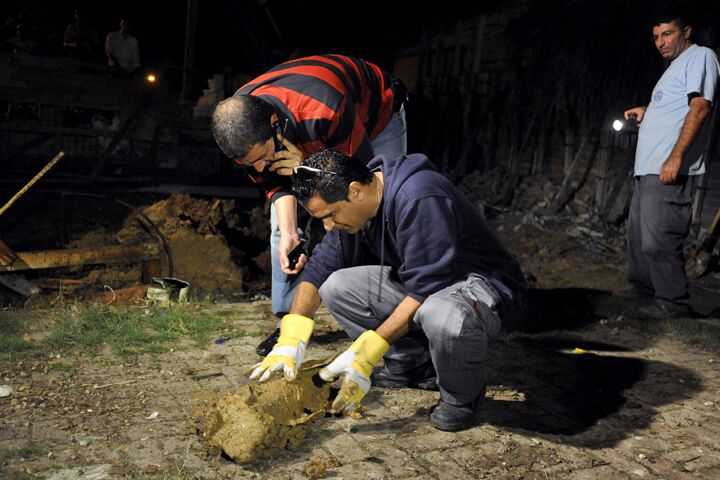
Jerusalem Watch: Hamas Sure Was Busy During Ceasefire
During his address to the British Parliament on Wednesday, Israeli President Shimon Peres identified Israel’s greatest threat as radical Islam led by the Islamic Republic of Iran. Peres said, “The Iranian leadership’s grand design is to convert the Middle East into one religious bloc.” He said Iran was “obsessed with its quest for regional religious domination. This quest is supported by long-range missiles, enriched uranium and fanatic incitement—all fueled by the excessive price of oil.”
On the same day that Peres delivered his speech, inspectors for the UN’s International Atomic Energy Agency announced that Iran had acquired enough low-enriched uranium to supply one atom bomb. According to the New York Times, “American intelligence agencies have said Iran could make a bomb between 2009 and 2015.”
Wasn’t it about this time last year when the media intelligentsia hyped the National Intelligence Estimate that said Iran had “suspended” its work on a nuclear weapon?
Inversion of International Law
When its four-month ceasefire with the Gaza Strip ended earlier this month, Israel quickly discovered how busy Hamas had been during the relative calm. The terrorist group used the respite to build up a stronger, farther-reaching arsenal. Now, it’s not just the residents of Sderot who live in fear of aerial bombardments—it’s Ashkelon and possibly Ashdod too.
Meanwhile, in a not-so-secret meeting with Jordan’s King Abdullah on Tuesday, Israeli Prime Minister Ehud Olmert and Defense Minister Ehud Barak assured His Majesty that “Israel does not intend to launch a major offensive to bring down the Hamas regime in Gaza in the near future.”
King Abdullah encouraged Israel to return to its ceasefire status with Hamas, which effectively prevents Israel from striking within the Gaza Strip, at the same time that Hamas builds up its arsenal, aims it at Israel and even digs trenches across the border with a view toward future abductions of Israeli soldiers patrolling the borderline.
The international community also sympathizes with the terrorists. Several world leaders and international agencies have called upon Israel to lift its partial blockade of Gaza. Some go as far as accusing Israel of violating international humanitarian law. This inversion of the intent of international law, as Caroline Glick notes at the Jerusalem Post, fails to protect the state that is under attack. It rather shields the aggressors from retaliation.
Determination and Resolve
Even with Iran barreling ahead on its nuclear program and Hamas firing missiles from Israel’s backyard, Israel remains firmly resolved to accommodate the demands of its enemies. This week, Israel announced that it would free 250 more terrorists from captivity.
